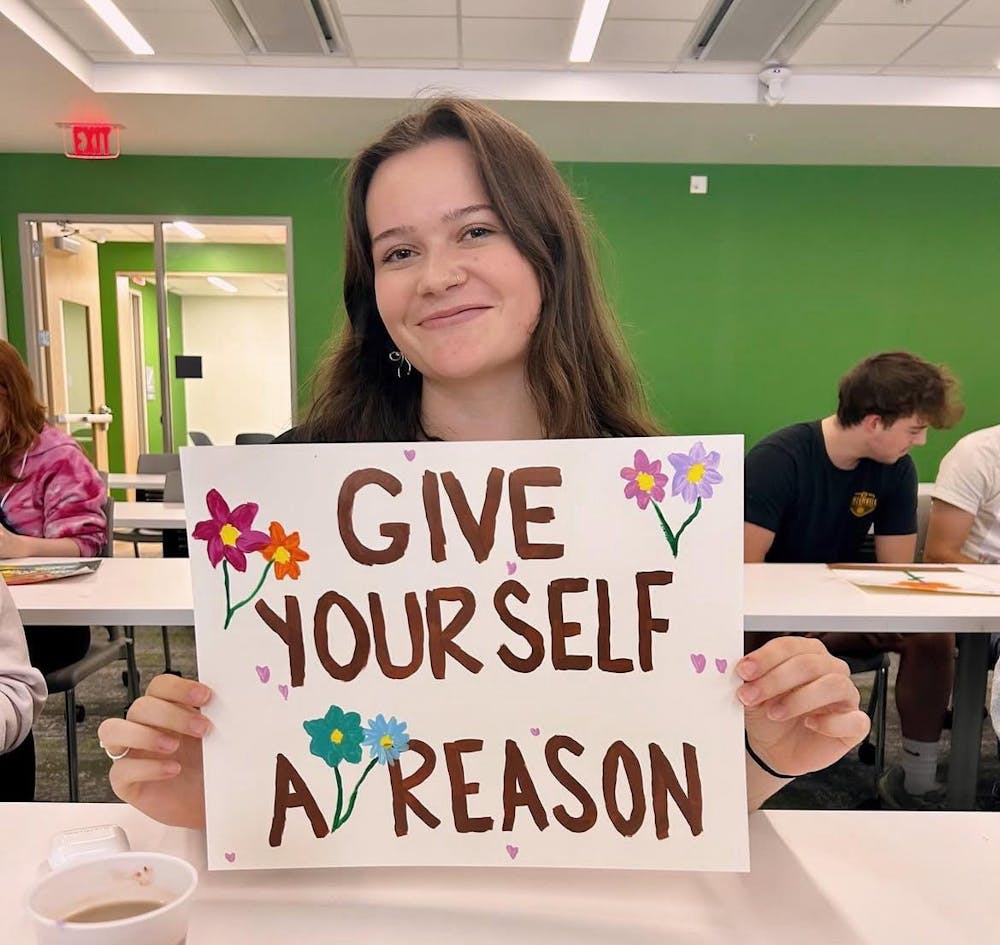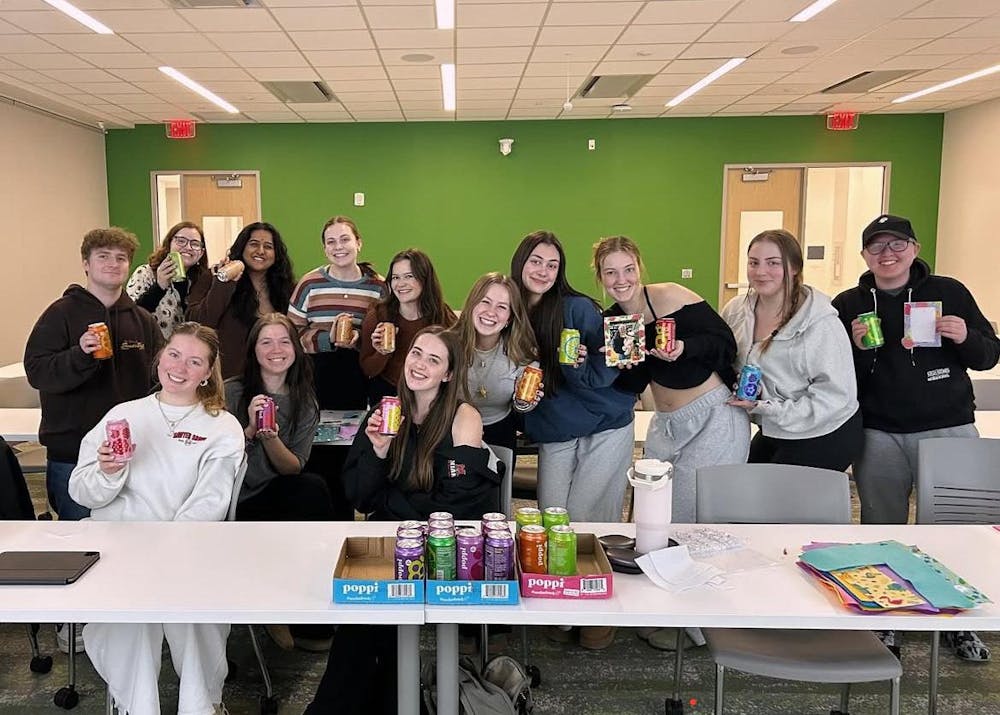If it weren’t for Miami University’s winter Mega Fair, Miranda Walker wouldn’t have known that Miami Hope, a student-run mental health awareness organization, existed.
“I've always been pretty passionate about mental health, but it wasn't really a thing in my high school; there was no organization dedicated to it,” Walker said. “I wasn't really looking for anything coming into college. I didn't realize [there was] anything until my spring semester.”
Now, Walker, a junior majoring in computer science, serves as secretary of Miami Hope, focusing on spreading awareness and resources about mental health to Miami students.
“We provide a ton of resources. We try to [share] on Instagram, we'll post multiple times a week, just resources,” Walker said. “We'll post about whether it's suicide prevention month or sexual assault awareness month, or just kind of spreading awareness on campus.”
Miami Hope is one of several organizations on Miami’s campus that aims to improve student mental health. What makes these organizations unique is that Miami officials do not run them; instead, they are organized by the people they aim to serve.
Recent surveys have shown that more than 60% of college students face mental health challenges. Between worrying about their grades to becoming concerned with current events and social media, there has been a significant increase in the number of college students who meet the criteria for mental health problems.
Enjoy what you're reading?
Signup for our newsletter
Jada Kramer, a junior majoring in public health and psychology, works as a mental health peer educator at the Office of Student Wellness and helps students struggling with their mental health. Kramer said that one of the best ways for students to cope with stress from classes and current events is to find a way to distance themselves from these sources.
“Whether it's just taking a walk like just to enjoy the outdoors, or coming to dog therapy at the wellness studio, or giving your family a call at home, or even just taking a nap, there are a bunch of different things you can do to kind of de-stress a bit,” Kramer said.
Mindfulness activities, such as those suggested by Kramer, are popular among mental health advocates because they promote awareness of one’s thoughts and feelings.
Carson Ebbrecht, a sophomore psychology and psychology and pre-med double major and president of Active Minds, another Miami student-run mental health organization, emphasized the importance of mindfulness activities for students.
“Active Minds [has] really differentiated itself [by] doing more campus events that are free, so students can be really engaged with mindfulness generally,” Ebbrecht said. “For this semester, we’ve done an event every single month, outside of our club hours, [and] inside Armstrong.”
For Ebbrecht, connecting with students and meeting them where they are in life is crucial to helping people access the support they need.
“I think a lot of times when you have bad mental health, it's really hard to reach out and seek out support,” Ebbrecht said. “So, how can we be that person? How can we fill that gap that needs [to be] filled?”
Kramer also recognizes the importance of having students be mental health advocates, especially since students seeking help may be overwhelmed by the traditional therapy process.
“I think there is something to say about the comfortability of talking with someone who is your own age, in your same situation, [and is] a fellow Miami student,” Kramer said. “You're not going into an office and sitting with an adult. I think people are a lot more willing to talk about their mental health when it's with someone who is going through the same things as them.”

Ella Pelland makes a sign to promote mental health at a Miami Hope meeting.
Students who want to help their peers struggling with mental health issues can undergo QPR training, a national program that allows students to become licensed in suicide prevention. Miami Hope and mental health peer educators have several licensed students who teach these programs.
“Miami Hope offers QPR training at least once a semester,” Walker said. “It stands for question, persuade and response. We provide [this] to make Miami a safer campus.”
However, students don’t have to take QPR training to engage in and be proactive about their own and their peers’ mental health. Ebbrecht said he wants students to understand that mental health looks different for everyone.
“With mental health, [some people] may think of it as a one-size-fits-all,” Ebbrecht said. “Being able to foster those differences between different aspects of mental health, because mental health is a very wide breadth of topic, can really impact mental health for the better.”
Ebbrecht, Kramer and Walker all said that providing an open and safe space for students to talk about their struggles and to find the help they need is the main goal of these student-run organizations.
“Miami, in my personal experience, has been very open,” Walker said. “There are resources available. It's not [an] insanely stigmatized topic to talk about on campus. There are plenty of people who care.”




